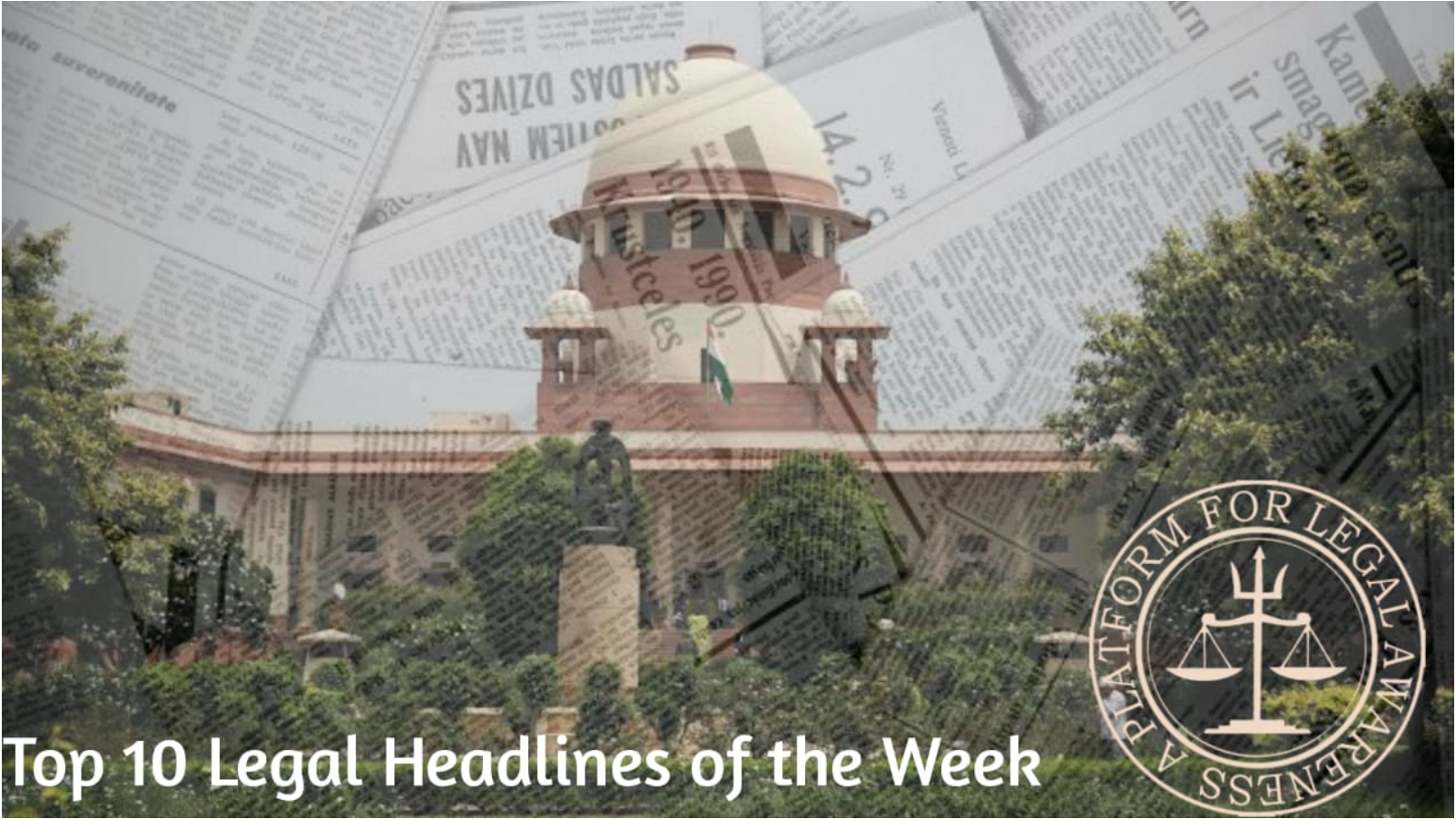1. Supreme Court Dismisses PIL Challenging Dowry Prohibition Act
The Supreme Court rejected a public interest litigation (PIL) seeking to strike down key provisions of the Dowry Prohibition Act of 1961. The Bench firmly dismissed the plea, stating, "Dismissed. Go and tell the Parliament." The ruling reinforces the Court’s stance on legislative matters, emphasising that any challenge to existing laws should be addressed through the appropriate legislative process rather than judicial intervention.
2. Supreme Court: Consumer Fora Can Intervene in One-Sided Builder-Buyer Agreements
The Supreme Court ruled that Consumer Fora have the authority to interfere in one-sided builder-buyer agreements, considering such terms as an unfair trade practice under the Consumer Protection Act, 2019. The judgment strengthens homebuyers' rights against unfair contractual clauses imposed by developers. However, the Court clarified that if a buyer cancels the allotment due to market fluctuations, the developer cannot be subjected to penal interest. The ruling strikes a balance between protecting consumer rights and preventing undue penalties on developers.
3. Supreme Court Seeks Response on Indefinite Detention of Bangladeshi Nationals
The Supreme Court has sought explanations from the Central and West Bengal governments regarding the prolonged detention of Bangladeshi nationals in correctional homes despite completing their sentences. The Court raised concerns over violating fundamental rights and directed the authorities to clarify why these individuals were not repatriated. The matter highlights administrative lapses in handling foreign convicts and ensuring their timely deportation. The Court emphasised the need for a structured policy to prevent indefinite detention.
4. Supreme Court Rejects Karnataka’s Plea to Classify Necrophilia as Rape
The Supreme Court on Tuesday dismissed Karnataka's appeal seeking to include necrophilia under the definition of rape in Section 375 of the Indian Penal Code (IPC). A Bench of Justices Sudhanshu Dhulia and Ahsanuddin Amanullah ruled that legislative amendments are the prerogative of Parliament, not the judiciary. The Court upheld a 2023 Karnataka High Court ruling, which held that the existing rape law applies only to living persons. However, it acknowledged the seriousness of the issue and left it to lawmakers to address it through appropriate legal reforms.
5. Supreme Court Cautions Telangana, Punjab, and J&K for Delay in Responding to PIL on RTE Act
The Supreme Court criticised the States of Telangana and Punjab and the Union Territory of Jammu and Kashmir for failing to respond to a public interest litigation (PIL) seeking enforcement of the Right to Education (RTE) Act. A Bench comprising Justices Vikram Nath, Sanjay Karol, and Sandeep Mehta noted that the lack of replies from these regions was delaying the case. The Court directed them to file their responses promptly to avoid further delays in the hearing.
6. Supreme Court: No Reduction of Forest Land Without Compensatory Land
The Supreme Court directed the Central and State governments to ensure that forest land is not reduced unless compensatory land is provided for afforestation. The order was issued while hearing petitions challenging the constitutional validity of the Forest Conservation Amendment Act, 2023. The Court emphasised the importance of maintaining ecological balance and mandated that an equivalent allocation of land must accompany any diversion of forest land for conservation purposes.
7. Supreme Court Transfers All CLAT 2025 Cases to Delhi High Court
The Supreme Court has ordered transferring all pending cases related to the CLAT 2025 results to the Delhi High Court. This decision was made following a request from the NLU Consortium to consolidate the cases under a single jurisdiction, preventing contradictory rulings from different High Courts. The move aims to ensure consistency and efficiency in addressing concerns about the law entrance exam.
8. Calcutta High Court Dismisses State's Appeal for Death Penalty in RG Kar Case
The Calcutta High Court on Friday rejected the West Bengal government's appeal seeking a death sentence for Sanjay Roy, convicted in the RG Kar rape and murder case. The court, however, allowed the Central Bureau of Investigation (CBI) to file an appeal, as the agency had conducted the investigation and prosecution. The CBI had opposed the State's plea, emphasising its independent role in the case.
9. Supreme Court: Relatives of Accused Cannot Be Implicated for Not Helping Victim in Section 498A Cases
The Supreme Court on Friday ruled that family members of a person accused of domestic violence under Section 498A IPC cannot be prosecuted merely for not assisting the victim. The Court emphasised that complaints and charges in such cases must be specific against each accused family member, preventing the misuse of legal provisions to implicate relatives without false allegations of wrongdoing.
10. Supreme Court Directs Danny Gaekwad to Deposit 600 Crore in Religare Takeover Case.
The Supreme Court ordered Danny Gaekwad, who has bid competingly to acquire Religare Enterprises Limited (REL), to deposit 600 crore by February 12 to demonstrate his bona fides. The Court also directed that Burman Family Holdings (promoters of Dabur) 's offer remain open until February 12, ensuring a fair and transparent takeover process.

